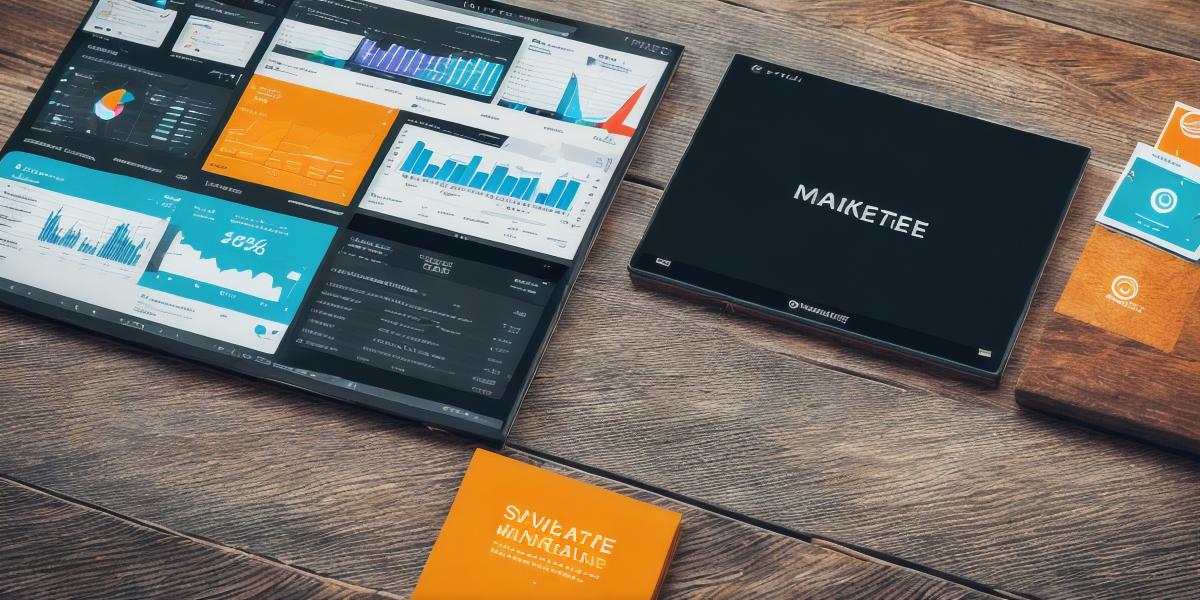How can businesses benefit from incorporating artificial intelligence into their marketing strategies
Marketing has always been about understanding your customers, anticipating their needs, and delivering value to them at the right time. But with the rise of artificial intelligence (AI) and machine learning, marketing has become a data-driven field that relies on algorithms and automation to deliver personalized experiences to customers across multiple channels. In this guide, we’ll explore how businesses can benefit from incorporating AI into their marketing strategies, including case studies and real-life examples to illustrate the points being made.
Table of Contents
-
Introduction to AI in Marketing
-
Personalization with AI
-
Automation in Marketing with AI
-
Chatbots and Virtual Assistants
-
Predictive Analytics with AI
-
Voice Search Optimization
-
The Future of AI in Marketing: Trends and Predictions
-
How to Implement AI in Your Marketing Strategy
-
FAQs about AI in Marketing
-
Conclusion
Introduction to AI in Marketing
Artificial intelligence (AI) is transforming many industries, including marketing. AI-powered tools and technologies are helping businesses understand their customers’ behavior, preferences, and needs on a deeper level. With AI, marketers can create personalized experiences for customers that are tailored to their unique interests and behaviors. In this section, we’ll explore the benefits of incorporating AI into your marketing strategy, including:
- Better understanding of customer behavior and preferences
- Increased efficiency and productivity in marketing campaigns
- Enhanced ROI on advertising spend
- Improved customer engagement and loyalty
Personalization with AI
One of the main benefits of incorporating AI into your marketing strategy is the ability to create personalized experiences for your customers. With machine learning algorithms, you can analyze data from various sources, such as social media, email marketing campaigns, and website analytics, to gain insights into your customers’ behavior, preferences, and needs.
Personalization allows you to deliver relevant content, offers, and promotions to each individual customer based on their unique interests and behaviors. For example, a retailer can use AI to analyze purchase history data and recommend products that are likely to be of interest to each customer. A restaurant can use AI to personalize the menu recommendations based on the customer’s dietary preferences, location, and previous orders.

Automation in Marketing with AI
Another benefit of incorporating AI into your marketing strategy is automation. With AI-powered tools and technologies, you can automate many marketing tasks, such as email campaigns, social media posts, and lead generation. Automation allows you to save time and resources, while also ensuring that your marketing campaigns are consistent and effective across various channels.
For example, a marketing agency can use AI to automate the process of creating personalized email campaigns for each client. An e-commerce company can use AI to automate the process of generating product recommendations for each customer based on their browsing and purchase history.
Chatbots and Virtual Assistants
AI-powered chatbots and virtual assistants are becoming increasingly popular in marketing, especially in industries such as e-commerce, hospitality, and healthcare. Chatbots and virtual assistants can help businesses provide personalized assistance to customers across multiple channels, including social media, messaging apps, and websites.
Chatbots and virtual assistants use natural language processing (NLP) to understand customer queries and provide relevant responses. They can also use machine learning algorithms to learn from past interactions and improve their performance over time. For example, a hotel chain can use a chatbot to help customers book rooms, make restaurant reservations, and answer any questions they may have about the hotel or its amenities.
Predictive Analytics with AI
AI-powered predictive analytics tools are becoming increasingly popular in marketing, as they allow businesses to make data-driven decisions based on insights derived from machine learning algorithms. Predictive analytics can help businesses identify trends and patterns in customer behavior that may not be immediately apparent through traditional analysis methods.
Predictive analytics can be used to forecast future sales and revenue, predict customer churn, and optimize advertising spend. For example, a retailer can use predictive analytics to forecast demand for certain products and adjust inventory levels accordingly, reducing the risk of stockouts or overstocks.
Voice Search Optimization
As more people use voice assistants such as Amazon’s Alexa, Google Assistant, and Apple’s Siri to search for information, it’s becoming increasingly important to optimize your marketing content for voice search. Voice search queries tend to be longer and more conversational than traditional search queries, so marketers need to focus on creating content that answers customer questions in a natural and conversational manner.
To optimize your marketing content for voice search, you can use natural language processing (NLP) tools to analyze customer queries and identify common themes and topics. You can also use keyword research tools to identify high-volume voice search queries related to your business and industry. For example, a restaurant chain can create a FAQ section on its website that answers common voice search queries about menu items, hours of operation, and location.
The Future of AI in Marketing: Trends and Predictions

As AI technology continues to advance, we can expect to see more innovative uses of AI in marketing. Some trends and predictions for the future of AI in marketing include:
- Increased use of chatbots and virtual assistants across various industries
- Greater adoption of predictive analytics tools for forecasting sales and revenue
- More personalized experiences for customers, driven by machine learning algorithms
- Greater use of voice search optimization to improve search engine rankings
- Continued growth in the use of AI-powered tools for automating marketing tasks
How to Implement AI in Your Marketing Strategy
Now that we’ve explored the benefits and trends related to incorporating AI into your marketing strategy, let’s take a look at some practical steps you can take to implement AI in your business.
- Identify areas where AI can add value to your marketing efforts, such as automation of repetitive tasks, personalization of customer experiences, or optimization of advertising spend.
- Invest in the right tools and technologies for your specific needs, such as chatbots, predictive analytics software, or machine learning algorithms.
- Collect and analyze data from various sources, such as social media, email marketing campaigns, and website analytics, to gain insights into customer behavior and preferences.
- Use AI-powered tools to automate repetitive tasks and streamline your marketing workflow.
- Continuously monitor and refine your AI-powered marketing strategies based on data and feedback from customers.
FAQs about AI in Marketing
- What is the main benefit of incorporating AI into your marketing strategy?
- The main benefit of incorporating AI into your marketing strategy is the ability to create personalized experiences for your customers.
- How can automation with AI help businesses?
- Automation with AI can help businesses save time and resources by automating repetitive tasks and ensuring consistency across various channels.
- What are some common use cases for chatbots and virtual assistants in marketing?
- Chatbots and virtual assistants can be used to provide personalized assistance to customers across multiple channels, including social media, messaging apps, and websites.
- How can predictive analytics help businesses make data-driven decisions?
- Predictive analytics can help businesses identify trends and patterns in customer behavior that may not be immediately apparent through traditional analysis methods.
- What are some key considerations for optimizing your marketing content for voice search?
- To optimize your marketing content for voice search, you should focus on creating content that answers customer questions in a natural and conversational manner, and use keyword research tools to identify high-volume voice search queries related to your business and industry.
Conclusion
Incorporating AI into your marketing strategy can help businesses provide personalized experiences for customers, streamline their workflow, and make data-driven decisions based on insights derived from machine learning algorithms. As AI technology continues to advance, we can expect to see more innovative uses of AI in marketing, including chatbots and virtual assistants, predictive analytics, voice search optimization, and automation of repetitive tasks. By following these practical steps and considering the benefits and trends related to AI in marketing, businesses can stay ahead of the curve and capitalize on the potential of this powerful technology.




